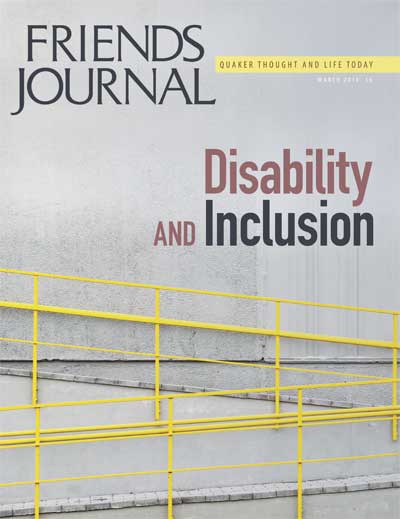Broz—Carmen Morán Broz, 91, on September 17, 2015, in Santa Rosa, Calif.
Carmen was born on December 15, 1923, in Sonsonate, El Salvador, to Carmen De Morán Paredes and Juan Antonio Morán. Her mother died when Carmen was four, and when she was nine, the Matanza killed many thousands of indigenous Salvadorans. At age 20, she accompanied a former teacher’s family to the United States to care for their children, earning a bachelor’s in economics from University of California, Berkeley in 1951.
She encountered Quakerism at an American Friends Service Committee workcamp in Nayarit, Mexico, leading to a scholarship for a master’s in social and technical assistance at Haverford College in 1953. Quaker philosopher Douglas Steere introduced her to Dorothy Day, and Carmen lived and worked for a time with Day in New York. In 1953 she married Perry James Broz, and they attended Phoenix Meeting when they lived in Phoenix, Ariz. Later, in the San Francisco Bay Area, Carmen became a reading specialist, teaching in local schools. She joined Palo Alto Meeting in 1969 and served on the El Salvador Projects Committee, which she founded, and on the Peace and Social Action Committee.
Her marriage ended in divorce in 1970. She retired from teaching in 1986 and returned to El Salvador with a SHARE Foundation project accompanying refugee peasant families trying to reclaim lands. During mass in a bombed-out church along the way, they were suddenly surrounded by the Atlacatl battalion, known for its massacres of campesinos (rural people). Responding to her strong words to him, a soldier said, “Señora, no somos animals, somos seres humanos también.” (“Madam, we are not animals, we are humans, too.”) She embraced him, creating a moment of reconciliation within a context of threat and terror. The next day she and the other internationals were jailed and expelled from El Salvador, but the campesinos were allowed to continue to El Barío to reestablish their farms and rebuild the village that became home to El Barío School, built with funds from a grant request that Carmen and Robert Broz wrote with the villagers.
Banned from El Salvador as persona non grata for several years, she taught reading and helped communities develop clean water in Nicaragua with the SHARE Foundation. In 1989 she came back to El Salvador with financial and logistical support from Palo Alto Meeting’s El Salvador Projects Committee. Her whole life had prepared her for this work; she wrote that her Catholic Worker service and Day’s example and teaching had “imprinted in the deepest part of [her] soul that the only meaning in our lives is to serve our brothers and sisters,” and that Day’s teaching her how to beg had served her well in getting funds for school uniforms, shoes, and books; Montessori nursery schools; and a live-in elementary school for El Salvador’s children, many left orphaned and even homeless by the war. The college student loan program that she established has almost 100 graduates, including more than 50 with two-year and 35 with four-year or higher degrees. The program supported 12 students in 2015.
In 2013, UC Berkeley elected her to the UC Berkeley Wall of Fame. Palo Alto Meeting’s El Salvador Projects Committee, now led by her son Robert Broz, is Carmen’s chief legacy and her testament to the uplifting power of education. She was fulfilled and at peace when she passed away, having lived her life to its potential and understanding that the process of dying begins at the moment of birth. Carmen is survived by four children, Lawrence Broz, Franz Broz, Robert Broz, and James Broz.



Comments on Friendsjournal.org may be used in the Forum of the print magazine and may be edited for length and clarity.